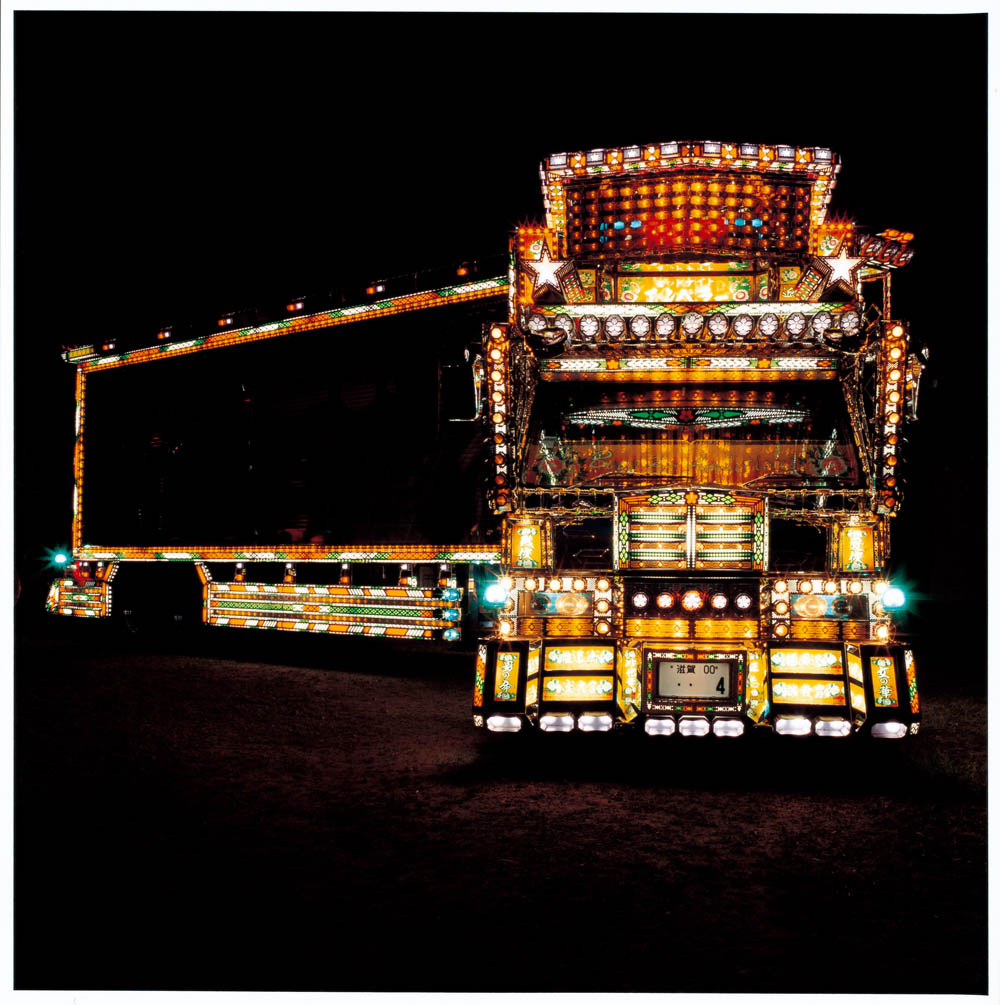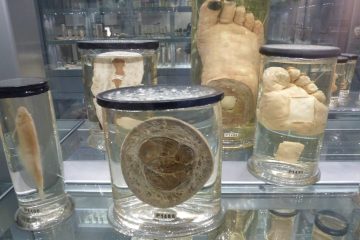
Inspired by a 1975 film series called Torakku Yaru (Truck Guys), which features a trucker who drives his garishly decorated truck all over Japan, ‘decotora’ – or decorating trucks – is now a prevalent subculture in the country.
Travelling for long distances through the night, these drivers are often invisible, yet essential to much of the population.
As if defying the invisibility cast around them, decotora truckers take an enormous amount of pride in their trucks, customising them with lights, artworks and accessories – the kitschier the better. Like jewelled snakes, the trucks emerge from the darkness of the highway, each revealing something about the person within.
We speak to photographer Tatsuki Masaru, who has spent years documenting the decotora scene, spending time with the truckers and capturing each truck’s unique character and spirit.
Firstly, what is this series about and how did it begin?
It’s about looking at Japanese society from the labour perspective. We get fresh food at supermarkets and with one click we get products from the net. However, there are always logistics that are not visible; truck drivers and trucks working to make everything on time. As I helped truck drivers when I was younger, I became interested in their lives that we cannot usually grasp.
It is because they are proud of their work and they wish to show that pride on the streets
What was it that appealed to you about the decotora scene? Is there a reason the drivers decorate their trucks so excessively?
How do we present ourselves when we are proud and confident of our jobs? Do we wear custom-made clothing or wear a rare and expensive watch? Those are things money can buy. The drivers of decorated trucks do everything by themselves: design, wire the electricity, create the sound from the muffler. It is because they are proud of their work and they wish to show that pride on the streets. Each truck also has a name, often the name of a wife or daughter.
Was there a specific place you went to find the drivers/trucks? Were most drivers open to being photographed?
I always went to their local spot or their home to photograph them. The drivers were much more defensive in the beginning as they imagine others cannot hear their voice. I worked on truck jobs and lived with them to hear what they have to say.
What can you tell us about their lifestyles?
Receiving goods and delivering them is only a small part of their job. They carry, load and unload goods. They are always alone in the truck. Of course, they love driving. When you decorate a truck, you have to keep it clean; they wash the truck after work, even if it is late. They have good driving manners. As they face isolation and loneliness on their job, they take care of each other and the bond is strong. Maybe it is an old fashioned lifestyle. There is strength in their sense of purpose, that their work supports the foundation of our lives.
For many people, the truck drivers are anonymous, their presence is invisible
How are truck drivers generally perceived by Japanese society?
They are probably feared for the way they look. Frequently in Japan, people judge by appearance. For many people, the truck drivers are anonymous, their presence is invisible.
What was the most memorable encounter you had while shooting this project?
While traveling with them, sometimes special things happened. For example, when we were at a rest area on the freeway, the lights of one of the trucks reflected on the pavement. It was a rainy day and the light looked like the truckers’ lonesome soul on the road.
What were you hoping to capture in this series?
What does labor mean? Does it leave a trait other than money? What is pride? I wanted to present questions about the way we live through depicting people and objects that are often overlooked.




